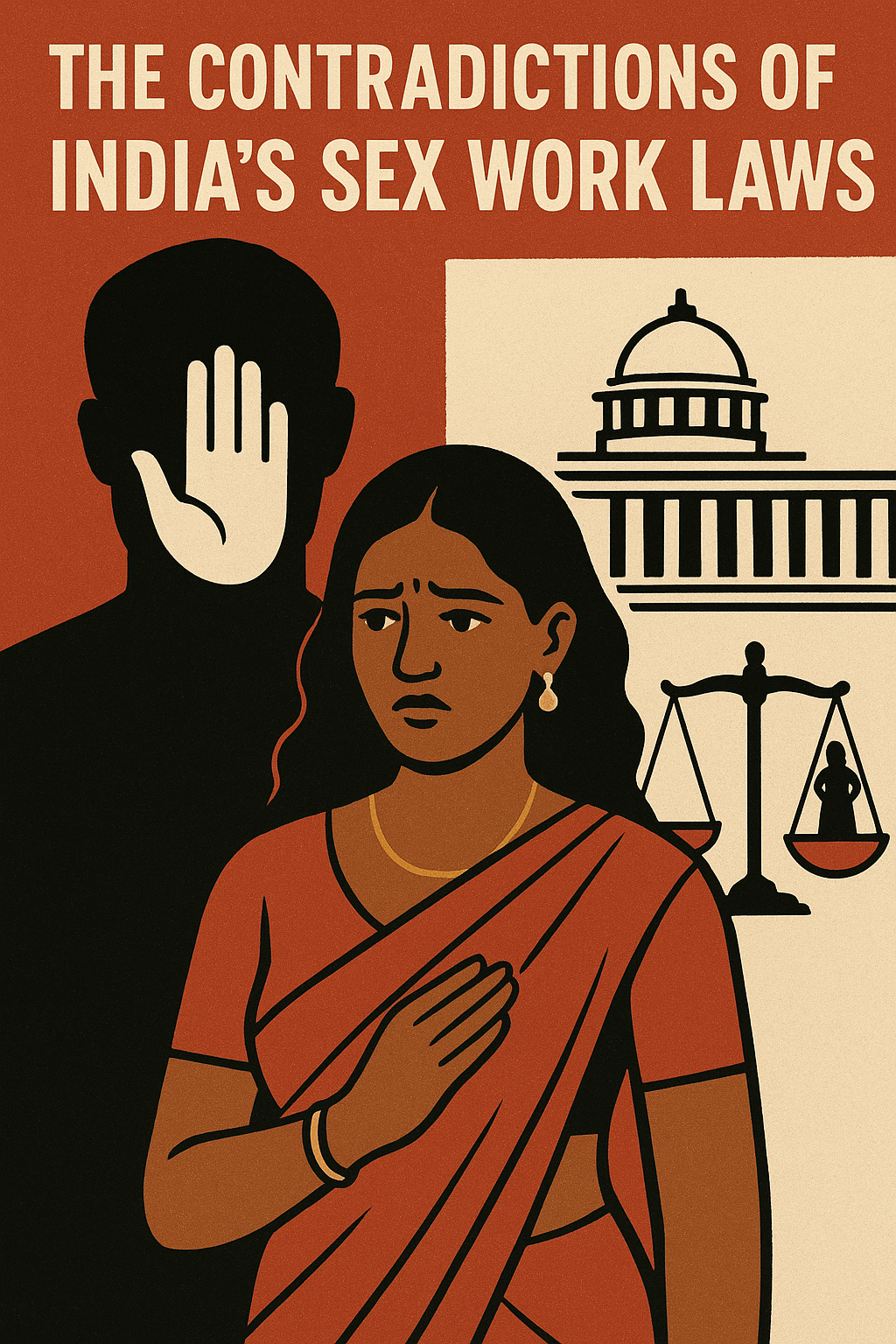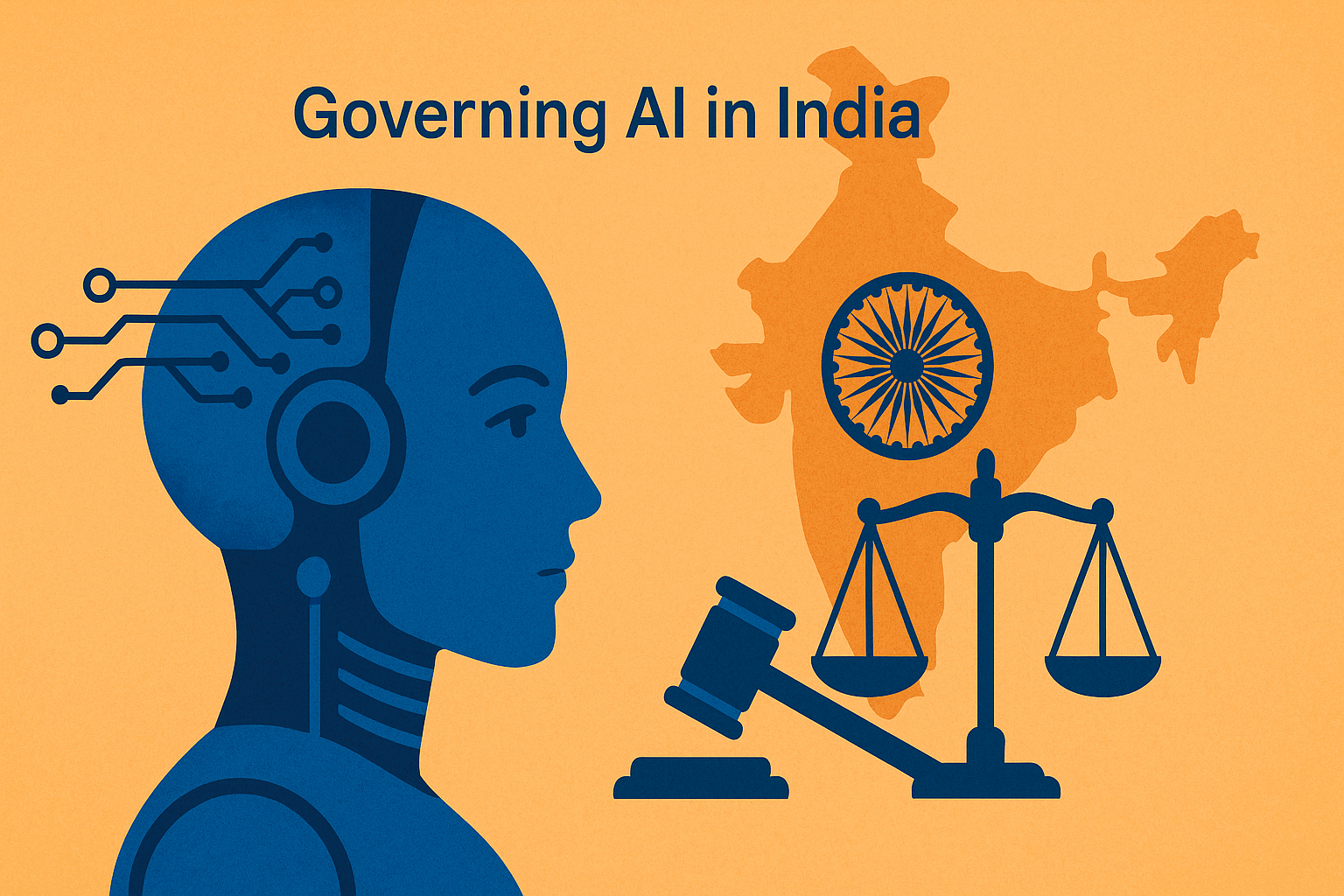



Artificial Intelligence (AI) is transforming innovation in India, generating creative and inventive outputs that challenge existing Intellectual Property Rights (IPR) frameworks. The Article outlines key legal frameworks, including the Information Technology Act (2000), the Indian Contract Act (1872), and the Digital Personal Data Protection Act (2023), which govern the integration of AI into IP systems. These laws, alongside India’s Copyright and Patent Acts, reveal gaps in addressing AI-generated works.
This article examines India’s legal frameworks affecting AI, and their implications for IPR. It proposes reforms to balance innovation with accountability, drawing on the DABUS case and ethical considerations to advocate for a robust, AI-ready legal system that fosters creativity, fairness, and sustainable technological growth.
The Information Technology Act (2000) governs digital data and cybersecurity in India, significantly impacting AI systems. Section 43A imposes liability on entities for negligence in protecting sensitive personal data, crucial for AI applications processing user information. Section 66 addresses cybercrimes, ensuring AI systems are safeguarded against misuse that could compromise IP. For instance, unauthorized access to AI-generated proprietary algorithms could lead to IP theft, necessitating robust cybersecurity measures under the IT Act to protect AI-driven innovation.
Additionally, the Act facilitates legal recognition of electronic records and digital signatures, essential for AI systems engaged in automated transactions. The growing reliance on AI makes strict enforcement of these provisions vital to ensure data integrity, confidentiality, and protection of intellectual property. Strengthening cybersecurity regulations under this Act is critical for fostering trust in AI technologies and maintaining India’s competitive edge in the global AI landscape.
The Indian Contract Act (1872) controls AI service agreements, including procurement, licensing, and development contracts. It ensures accountability when AI systems fail to deliver as promised, with liability clauses defining responsibilities for developers and users. This is vital for IP disputes involving AI-generated content, such as software or designs, where ownership and usage rights must be clearly defined.
Moreover, with AI’s growing role in autonomous decision-making, well-drafted contracts are crucial to address potential risks, ethical considerations, and unforeseen liabilities. This includes defining the scope of AI use, limitations of liability, dispute resolution mechanisms, and confidentiality obligations related to AI-generated outputs. The Act thus provides a legal backbone for ensuring fair, transparent, and accountable AI innovation in India’s evolving digital economy.
India’s Copyright Act (1957) requires human authorship, excluding AI-generated works unless significant human creativity is demonstrated. For example, AI-generated art lacks protection without human input.
The Patent Act’s Section 3(k) bars algorithms and computer programs unless they produce a technical effect, as seen in IPA 3323/CHENP/2012, where a patent was granted for an AI system reducing energy consumption. In contrast, IPA 8383/DELNP/2009 was rejected for a lack of technical impact.
These human-centric laws limit AI’s role in IPR, creating gaps in protection. As AI-generated outputs become more autonomous and sophisticated, these legal limitations hinder the ability to secure rights for valuable AI-driven inventions. Without reform, India risks discouraging innovation and losing its competitive advantage in the global AI landscape. A balanced legal approach is essential to address these emerging challenges.
The Digital Personal Data Protection Act (2023) (DPDP Act) is important for the AI system to process personal data. It mandates informed consent, data minimization, and the appointment of Data Protection Officers, impacting AI applications in IP creation, such as personalized content generation. Non-compliance can lead to liability, affecting the development and deployment of AI tools.
The DPDP Act ensures privacy in AI-driven IP systems but lacks specific provisions for AI-generated outputs, necessitating integration with IPR laws. Furthermore, as AI increasingly relies on vast datasets for training and content generation, ensuring compliance with data privacy norms becomes critical to maintaining public trust.
The DPDP Act empowers individuals to control their data, but ambiguity remains regarding ownership and IP rights over AI-generated creations derived from personal data. Addressing these gaps through harmonized policies with IPR laws is essential to encourage responsible AI innovation while safeguarding individual rights and proprietary interests.
India’s Ministry of Electronics and IT (MeitY) and NITI Aayog promote ethical AI through initiatives like “#AIforAll” and “Responsible AI for All.” These frameworks emphasize fairness, transparency, and self-regulation, guiding IP protection in AI contexts. The Draft National Data Governance Framework Policy (2022) supports anonymized data access for AI innovation, balancing IP rights with public interest.
These initiatives signal India’s commitment to ethical AI but require stronger legal backing to address IPR challenges effectively. Currently, these policies lack enforceability, relying heavily on voluntary compliance, which may be insufficient as AI technologies rapidly advance.
Establishing robust statutory mechanisms is crucial to ensure accountability and alignment with international best practices. Additionally, integrating ethical AI guidelines with patent and copyright laws can provide clearer pathways for managing ownership, liability, and ethical use of AI-generated content.
India’s legal frameworks lack AI-specific provisions, creating uncertainty in IP attribution. The “black box” nature of AI complicates liability, as determining responsibility for biased or harmful outputs is challenging. Human-centric IP laws exclude autonomous AI works, while contractual gaps in AI agreements risk disputes over ownership.
The DPDP Act addresses data privacy but does not cover AI’s role in IP creation, highlighting the need for targeted reforms to bridge these gaps and support innovation. Additionally, the absence of clear guidelines on AI inventorship and authorship limits the ability of innovators to claim rights over AI-generated inventions or creative works.
This regulatory ambiguity can prevent investment in AI-operated research and development. Furthermore, fragmented legal interpretations and the lack of judicial precedents on AI and IP further contribute to uncertainty. Without comprehensive, AI-inclusive legal reforms, India risks stalling innovation and falling behind in the global AI race.
To address AI’s impact on IPR, India should implement the following reforms:
AI’s integration into India’s IP systems raises ethical concerns, including algorithmic bias and data privacy. Biased AI outputs in fields like hiring can perpetuate discrimination, requiring inclusive data training and transparent algorithms. The DPDP Act addresses privacy, but it needs broader ethical guidelines to ensure fairness.
Public trust in AI-driven IP systems depends on accountability, necessitating human oversight and robust regulatory frameworks to mitigate societal risks. Moreover, questions of authorship, ownership, and accountability in AI-generated works raise complex ethical dilemmas.
Without clear attribution, it becomes difficult to ensure that AI-generated content respects cultural sensitivities, human rights, and moral standards. There is also a risk of monopolization by entities controlling advanced AI tools, which could widen social and economic inequalities.
India’s legal frameworks must align with global standards to support AI-driven innovation. The DABUS case, where AI was denied inventorship status globally, underscores the need for harmonized IPR laws. International collaboration through WIPO can help India adopt best practices, ensuring consistency in protecting AI-generated works while fostering innovation and competitiveness in the global AI landscape.
As AI technologies rapidly evolve, fragmented national laws create uncertainty for inventors and businesses operating across borders. Participating in global discussions on AI and IP, such as those led by WIPO and the European Patent Office, can help India stay at the forefront of legal innovation.
India’s legal frameworks, including the IT Act, Contract Act, and DPDP Act, provide a foundation for governing AI in IP contexts, but significant gaps persist. Human-centric IP laws and the lack of AI-specific provisions hinder protection for AI-generated works, as seen in cases like DABUS.
Proposed reforms, such as recognizing human-AI collaboration, strengthening data privacy, and aligning with global standards, can address these challenges. By integrating ethical guidelines and robust legal frameworks, India can foster AI-driven innovation while ensuring fairness and accountability in the evolving IPR landscape.
Additionally, introducing clear definitions for AI-generated inventions and clarifying liability for AI-related IP disputes are critical steps. Judicial training and capacity building in AI-related legal issues will further ensure consistent interpretation and enforcement of these evolving laws.
A proactive, inclusive approach will help India unlock the full potential of AI while safeguarding intellectual property and public interest.
https://www.thelegalyoungster.com/legal-internship/
https://www.thelegalyoungster.com/category/daily-news/